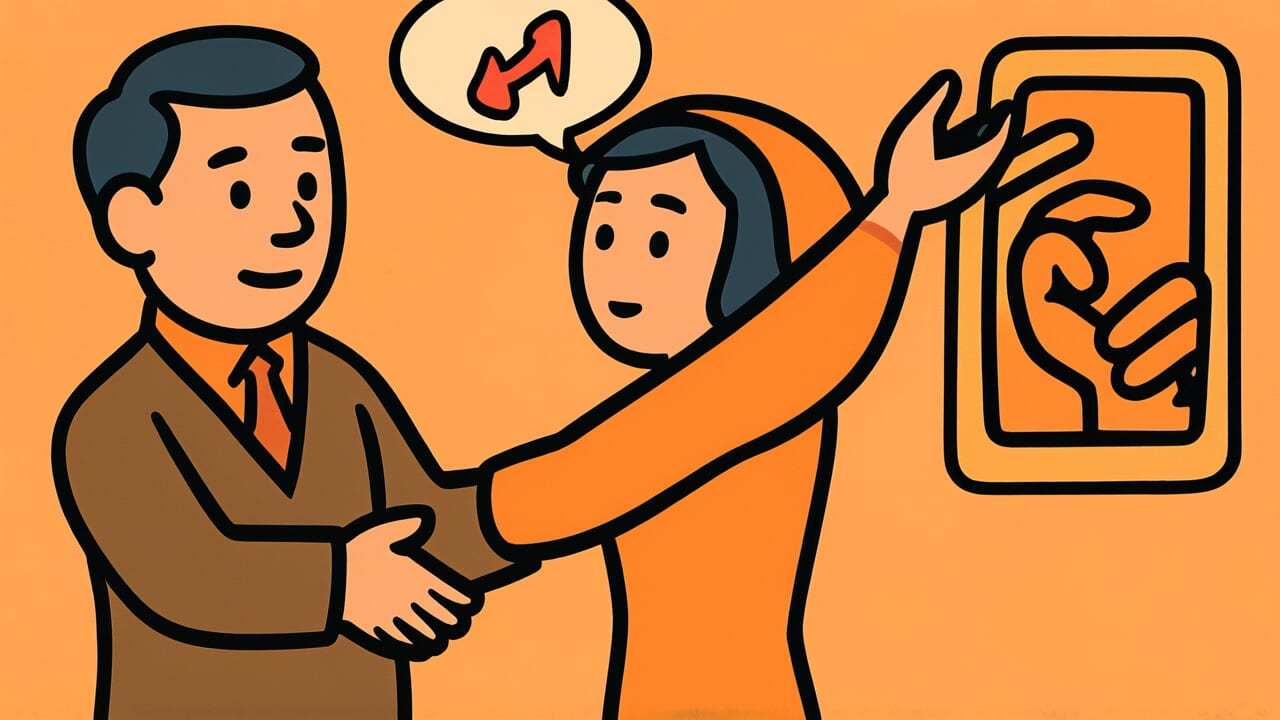How to Read “When love is excessive, hatred arrives”
Ai ōkereba nikushimi itaru
Meaning of “When love is excessive, hatred arrives”
This proverb shows a truth about human feelings. When you love someone too deeply, that love can sometimes turn into hatred.
When you love someone very much, you start expecting too much from them. You might want to control them or make them act the way you want.
When they don’t meet your expectations, you feel disappointed and angry. This disappointment can grow into hatred.
People use this proverb for close relationships like romantic couples or parents and children. It explains situations like “I loved them so much, but now I can’t even look at them.”
The proverb shows that deep love and strong hatred are two sides of the same coin. Even today, many people understand this when their intense relationships fall apart.
Origin and Etymology
No one knows exactly where this proverb came from. But we can learn interesting things by looking at how it’s built.
The proverb connects two opposite feelings—love and hatred—in a cause-and-effect relationship. This structure is very unique.
For a long time, Japanese culture has taught people not to have extreme emotions. This proverb probably came from these teachings.
Two important philosophies influenced this idea. Confucianism values balance in everything. Buddhism teaches that attachment causes suffering.
The word “excessive” is important here. The proverb doesn’t say love is bad. It says too much love is the problem.
The word “arrives” suggests a natural process. It means that when love becomes too strong, it naturally changes into hatred. This is how human psychology works.
People in every time period have experienced this. In close relationships like family or romance, the gap between expectations and reality creates disappointment and anger.
This proverb captures these complex human feelings perfectly. That’s why people have passed it down through generations.
Usage Examples
- My love for her was so strong that I became controlling. We eventually broke up. This is exactly what “When love is excessive, hatred arrives” means.
- I loved my son so much that I interfered too much in his life. Now he won’t even talk to me. “When love is excessive, hatred arrives” became true for us.
Universal Wisdom
This proverb teaches us an important truth. Human emotions need proper distance and balance.
Why does deep love turn into hatred? Because the deeper your love, the higher your expectations become. The gap between your ideal and reality gets bigger.
When you love someone, you see them as “special.” You unconsciously think they should meet all your expectations. You assume this is natural.
But the other person is human too. They’re not perfect. They’re an independent person who won’t always do what you want.
Deep love sometimes makes us forget this simple fact. We lose sight of reality.
Here’s something interesting: the strength of hatred matches the depth of love. In a casual relationship, broken expectations don’t hurt much. You just think “oh well.”
But when you deeply love someone, feeling betrayed creates enormous anger and sadness. The emotional energy of love transforms into hatred.
This proverb teaches us how difficult love is. It shows us that distance matters in relationships.
True love might mean respecting the other person, keeping proper distance, and allowing them freedom.
When AI Hears This
Looking at love from a physics perspective reveals a surprising structure. Love is a highly organized state of information.
When you love someone, you predict their behavior, expect certain things, and idealize them. You think “this person is like this” or “they’ll definitely do this.” This certainty is a low-entropy state—a highly ordered state.
But the second law of thermodynamics says entropy always increases in a closed system. In other words, order always moves toward disorder. Human relationships are no exception.
The other person doesn’t act as predicted. Expectations get broken. The idealized image crumbles. This process creates a gap—”this wasn’t supposed to happen.”
This gap appears as energy dissipation, or emotional exhaustion.
Here’s what’s interesting: the stronger the love (the higher the initial order), the more dramatic the entropy increase when it collapses.
In physics, falling from a higher place releases more energy. Emotions work the same way.
Hatred isn’t the opposite of love. It’s the emotional energy released when highly ordered love moves toward disorder. The laws of the universe apply to human hearts too.
Lessons for Today
This proverb teaches modern people that love needs healthy balance. Today’s world makes excessive love and dependent relationships easy to develop.
On social media, people constantly check what their partner is doing. They get anxious when replies come late. These are signs of unhealthy attachment.
The key is to love someone while respecting their freedom and independence. The other person isn’t your property. They’re an independent human being.
Don’t put too many expectations on them. Don’t force your ideal of “how they should be” onto them.
Most importantly, value your own life. Maintain mental independence. Don’t depend too much on the other person.
Love lasts longer when there’s proper distance. Keep appropriate space between you and your partner. Recognize and accept each other’s individuality and freedom. This is what grows true love.
Think about your relationship with someone important to you. Are you unknowingly controlling them in the name of love?
Real love means wishing for the other person’s happiness and respecting their choices.



Comments